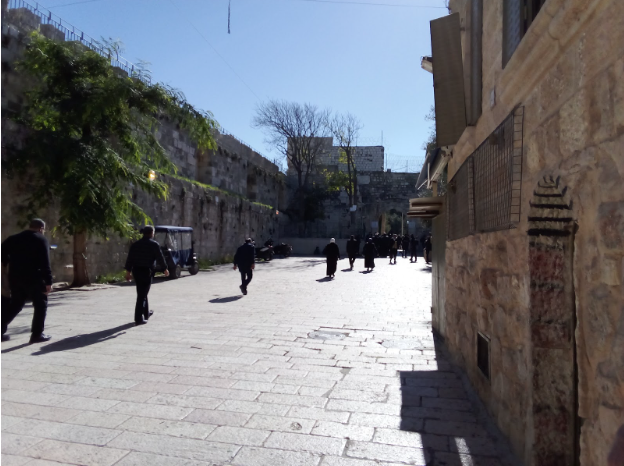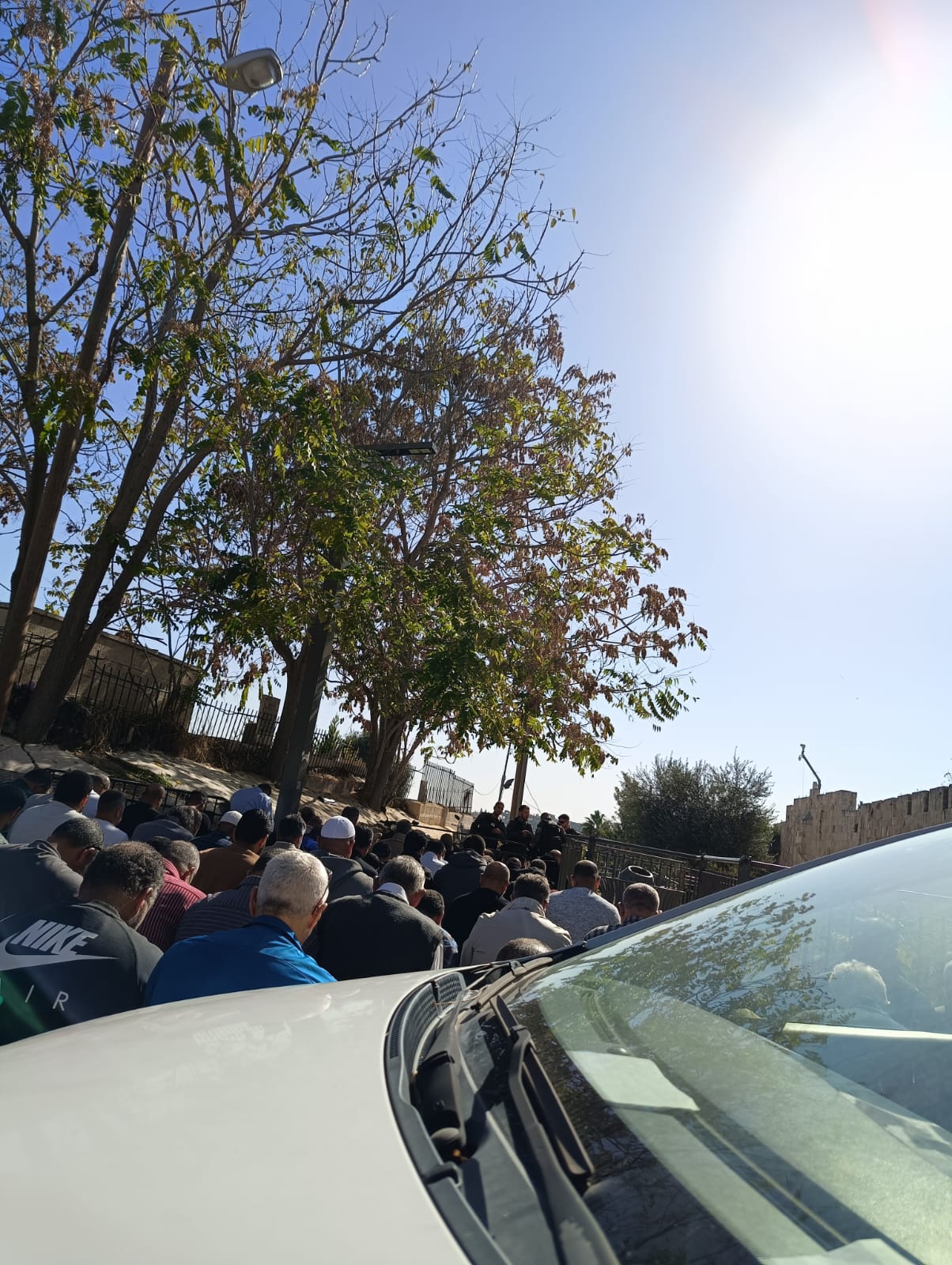Tag: Al Aqsa
-
Blocking Paths to the Holy
Israeli soldiers and police once again blocked the majority of worshippers from entering Al Aqsa Mosque on Friday, December 15th.
-
Dissonance in Jerusalem
As we left the forcibly silent Muslim quarter, we were bombarded by celebration, carelessness, and isolation just a few blocks over in a Jewish Neighborhood.
-
A Prayer Against An Army
Palestinians: men, women, youth, and elders, walk miles attempting to reach Al Aqsa Mosque, trying every gate. Each path is blocked by Israeli guns and barricades.



